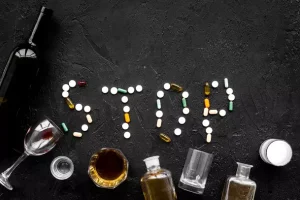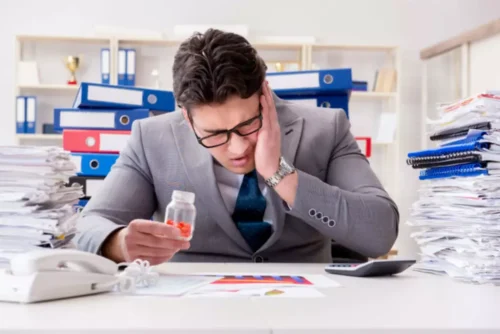
Alcohol also alters the function of the stomach, liver, and kidneys in ways that prevent the body from properly detoxifying waste material. This waste then builds up and harms many regions of the body, including the nerves. Heidi Moawad is a neurologist and expert in the field of brain health and neurological disorders. While alcohol sends you into dreamland quicker, there’s a good chance that having too much will lead to a night of tossing and turning once its sedative effects wear off. If you’ve ever had to nurse a hangover, nausea and vomiting are commonly part and parcel of the ordeal. While throwing up can make you feel miserable, it is one of your body’s self-defense mechanisms to remove excess toxins from the alcohol consumed.
Long-term effects
Consistently drinking over a period of time leads you to develop a tolerance to alcohol. If you suddenly stop drinking, this can lead to a number of uncomfortable alcohol withdrawal symptoms. It often drives people with alcoholism to keep drinking in order to limit these symptoms. This is called ‘alcohol flush reaction’ and it happens when your body is unable to fully digest all the alcohol you’ve consumed. This means that the toxins in alcohol, including acetaldehyde, can build up in your body.
The Blood Thinning Properties of Alcohol
The more you drink, especially in a short period of time, the greater your risk of alcohol poisoning. A person can consume a fatal dose of alcohol before passing out. Even when the person is unconscious or stops drinking, the stomach and intestines continue to release alcohol into the bloodstream, and the level of alcohol in the body continues to rise. Alcohol use may also contribute to complications that affect multiple bodily systems, such as certain cancers, fetal alcohol spectrum disorders, and chronic pain.
responses to “6 signs unexplained bruising may be worrisome”

Alcohol in the form of ethanol, also called ethyl alcohol, is in alcoholic beverages. It’s also in mouthwash, some cooking extracts, some medicines and certain household products. Ethyl alcohol poisoning generally results from drinking too many alcoholic beverages in a short period of time. Alcohol poisoning is a serious — and sometimes deadly — result of drinking large amounts of alcohol in a short period of time. Drinking too much too quickly can affect breathing, heart rate, body temperature and gag reflex. In many cases, people with alcohol-related liver disease (ARLD) do not have any noticeable symptoms until their liver is badly damaged.
Continued Use Despite Consequences
Consuming alcohol on an empty stomach is said to have negative consequences such as increased bruise risk and other side effects. It may induce quicker absorption into the circulation, resulting in higher alcohol levels in the body. It may cause dehydration and interfere with your body’s natural capacity to coagulate blood, resulting in skin damage and bruising. After all, heavy alcohol consumption increases the risk of serious injuries from falls, burns, and motor vehicle crashes. An alcohol use disorder is a legitimate medical condition that causes lasting changes in the brain. Once a person develops an alcohol use disorder, they will continue to drink, even in the face of serious consequences, such as health problems caused by alcohol.

Alcoholic fatty liver disease is also called hepatic steatosis. Consuming too much alcohol can inhibit the breakdown of fats in the liver, causing fat accumulation. This is when a male rapidly consumes five or more alcoholic drinks within two hours or a female consumes at least four drinks within two hours. An alcohol binge can occur over hours or last up to several days.
Plus, you’re more susceptible to an accidental fall or bump after you’ve been drinking, anyway. How alcohol addiction physically affects different parts of your body. Alcohol can alcohol cause bruising use disorder can include periods of being drunk (alcohol intoxication) and symptoms of withdrawal. By Heidi Moawad, MDHeidi Moawad is a neurologist and expert in the field of brain health and neurological disorders.
Do You Bleed More When You Drink?
When this message is interrupted due to damaged nerves, the muscles cannot function as they normally would. This most often manifests with weakness of the hands and feet. Another prominent effect of alcoholic neuropathy involves painful and uncomfortable sensations. Alcoholic neuropathy can result in hypersensitivity to touch and even resting pain. Light touch can feel exaggerated and painful, particularly in the fingers and toes.

Alcoholic hepatitis
- If a person drinks alcohol regularly, the short-term effects, such as dry skin and flushing, are more likely to become a persistent problem.
- Bruises happen when blood leaks out of your veins and capillaries and pools under your skin because there isn’t an opening for the blood to get out of your body.
- These contributors included both experts external to NIAAA as well as NIAAA staff.
- You should go see your doctor if you’re bleeding and it won’t stop, the pain is too intense, or you see a lot of damage to the base of your nail.
In this case, you should go see your doctor to find out what’s going on. A bruise is a discolored mark on your skin that forms when blood vessels under your skin break and leak. They can be caused by several things, such as an injury, certain disorders, or certain medicines. Most bruises don’t need treatment because they heal on their own, usually within about 2 weeks. Bone bruises usually last longer (1-2 months) than soft tissue bruises, and they’re more painful, but most will heal with rest and the same home care as for other types of bruises.
- In fact, a person who drinks heavily might not recognize that the symptoms they are experiencing are related to their alcohol consumption.
- More resources for a variety of healthcare professionals can be found in the Additional Links for Patient Care.
- After stopping drinking, which is the first step in any treatment of ALD, an assessment will be made as to the extent of the damage and the overall state of the body.
- Your primary care provider will refer you to a hematologist if you have continued significant bruising larger than one centimeter with no known trauma.
This condition occurs naturally in our bodies in response to various stimuli. However, excessive vasodilation caused by external factors, like drinking alcohol, can Halfway house be problematic. Read on to learn how heavy drinking can make you more susceptible to bruising and how you can prevent this condition from worsening.